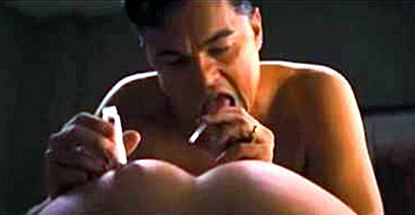 Cocaine, pornography and reminiscing over past glories are strict no-nos if you want to be a successful gambler. That said, they’re invaluable if you’re looking to get high, hard or allow yourself a brief respite from your mind-numbingly boring current existence, so to each his own.
Cocaine, pornography and reminiscing over past glories are strict no-nos if you want to be a successful gambler. That said, they’re invaluable if you’re looking to get high, hard or allow yourself a brief respite from your mind-numbingly boring current existence, so to each his own.
Dr. David Greenfield, a director at the Center for Internet Technology Addiction at the University of Connecticut School of Medicine, told Vice that watching your favorite porn star plugging various orifices with various cylindrical objects activates the limbic parts of the brain. But this cuts off the brain’s prefrontal cortex, where decisions involving moral choices are made.
Greenfield told the Christian Post that when your prefrontal is disengaged, you “don’t have access or full control over [your] judgment,” causing you to do dumb things, like taking a hit on 19. So as tempting as it is to keep that PornTube browser tab open while you’re gambling online, this would be a good time to zip it. If it helps, use this handy mantra: bank now, spank later.
COKE ADDS ERRORS
Meanwhile, a new study published in the Journal of Neuroscience by researchers at the Icahn School of Medicine at Mount Sinai shows that cocaine use impairs the brain’s ability to predict losses. The study involved 50 coke addicts and 25 control subjects playing a gambling game while their brains were wired to detect electrical activity. The participants were asked to predict whether or not they’d win or lose money in each trial.
The addicts who’d snorted some blow in the previous 72 hours displayed much higher electrical activity from an unexpected win than a predicted win, similar to the control subjects. The coke users who’d abstained in the previous 72 hours failed to display this activity, suggesting that they used cocaine to normalize a certain brain function.
But bottom line, the results showed the addicts displayed “impaired loss prediction signaling in the brain.” The addicts had a much harder time than the control subjects “computing the difference between expected versus unexpected outcomes.” This impairment suggested these individuals were more prone to disadvantageous decision making, so lay off the blow before you blow on those dice.
YOUR MEMORY IS OUT TO GET YOU
Finally, researchers at the University of Warwick and the University of Alberta found that people are more likely to gamble after being reminded of a past gambling win. Study participants were seated at computer monitors displaying two doors and told to click on just one.
There were four color-coded doors in total: three doors with fixed values of 0, 40 and 80 points, while a fourth door was a wild card offering either 20 points or 60 points. The differing wild card values were associated with a fixed fruit image (one for high, one for low).
Once the participants were familiar with the test, they were presented with a number of scenarios in which they were asked to choose between the 40-point value door and the wild-card door. In these tests, the participants chose the risky option 41% of the time. But when they were ‘primed’ by a brief on-screen flash of the 60-point fruit icon before making their decision, 56.8% took the riskier option. The authors allowed enough tests to ensure the participants recognized that the brief fruit flash was not necessarily indicative of the final result.
The study’s authors concluded that “explicitly priming memories for recent winning outcomes can induce people, who are ordinarily risk averse, to exhibit risk-seeking in decision from experience.” Interestingly, the authors found that priming cues associated with losing had little effect on decision-making. CalvinAyre.com’s verdict? Fruit is bad for you, unless it involves a porn star and a banana.
